- January 7, 2025
-
-
Loading

Loading
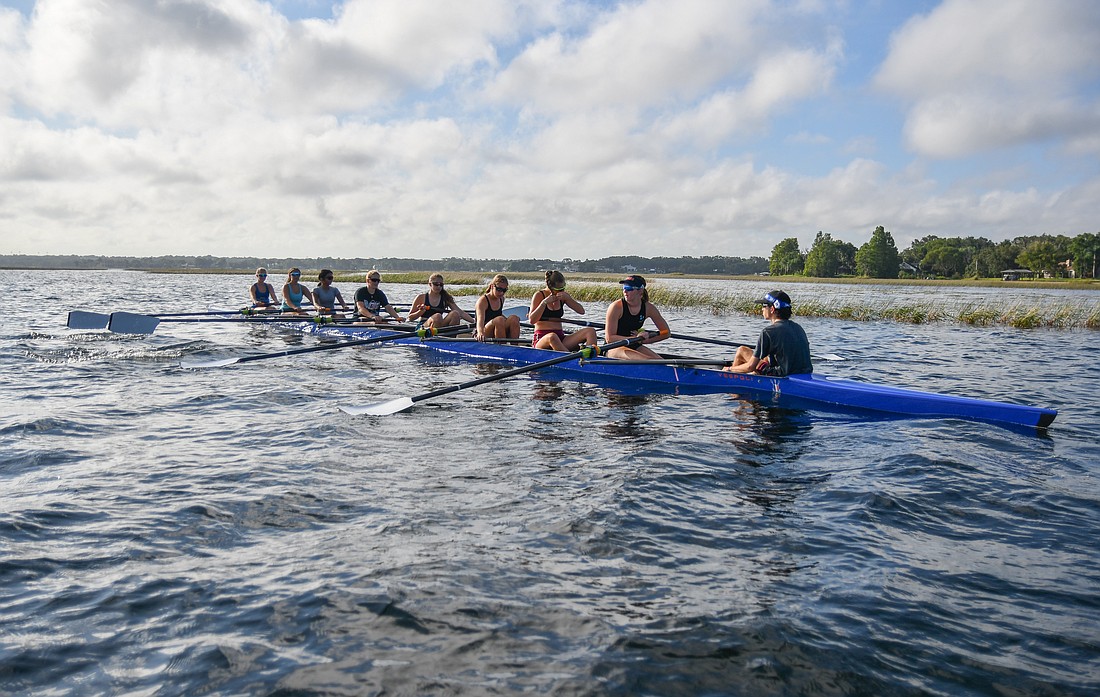
The Orlando Area Rowing Society is taking nine boats — the most in its history — to the U.S. Rowing Youth National Championships June 8 to 11 at Nathan Benderson Park in Sarasota.
“There are A through E finals,” OARS Director Kirsten Anderson said. “Each boat really has varying expectations. We would like for as many boats as possible to get into the A final, but that is really tough when competing against 220 teams from across the country.”
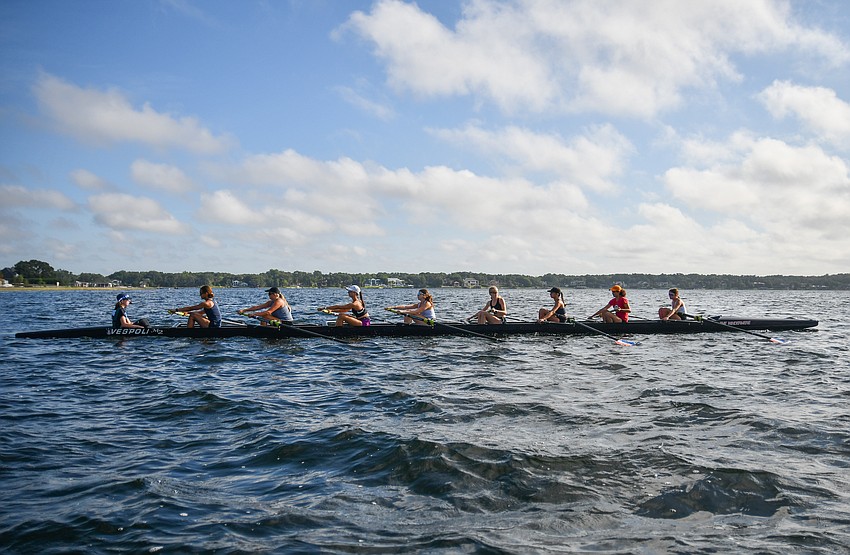
Getting to nationals is a long and arduous process. Rowers must compete in several regattas throughout the year, where coaches test speed, power and the ability to move the boat on the water, to later place the rowers in the boats where they would be a better fit.
“It is really about finding the fastest rowers,” Anderson said. “From there, coaches determine line ups based on categories we enter. Some are determined by age — like U15, U16 (and) U17.”
For senior Molly Dansby, 18, who will attend the University of North Carolina, Chapel Hill, in the fall — where she will be a part of the rowing team — this will be her first national championship as an OARS rower.
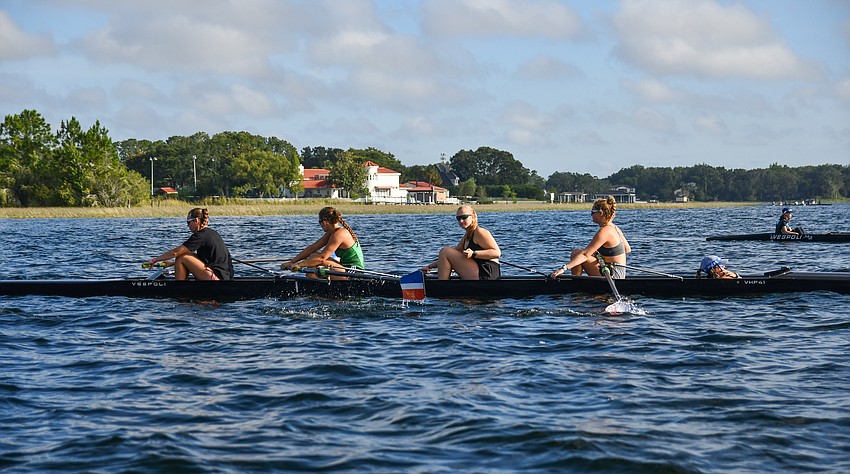
“I’m so excited; I just switched to the team, and it’s really exciting to be able to say that I was able to be a part of one of the biggest teams in Florida and represent (it) at nationals,” she said. “It’s such a unique environment here that cultivates speed and positive energy, and it’s really nice to be able to represent something as positive … as OARS has been to me.”
Dansby, who will compete in the Women’s U19 4+ category, has been putting in extra hours during the past couple of weeks, along with her teammates and boat partners.
“It honestly takes a lot of dedication,” she said. “Since ending school … I’ve been putting in the two-a-day practices. … It takes a lot, and you have to make sure you are on top of the game, because it is the Varsity 4 (boat), so (the team) has to take the fastest rowers. (You have to) try to make sure you are one of those fastest rowers on and off the water.”
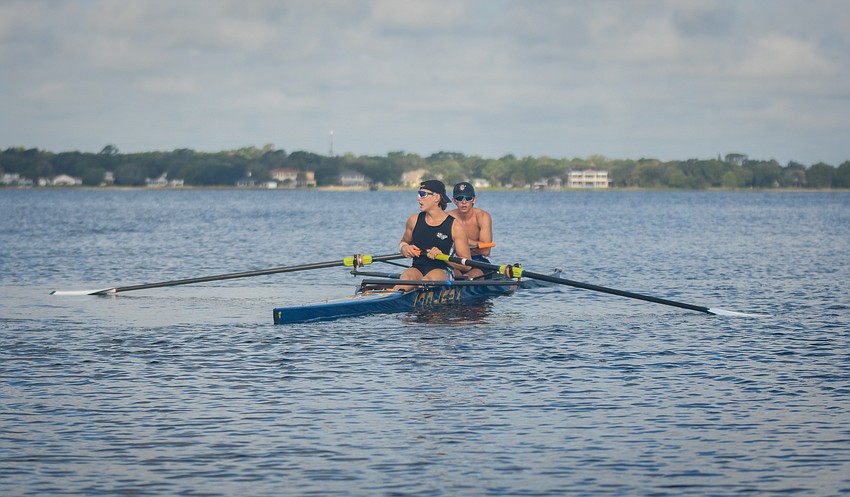
Senior Owen DeBoer, 18, who will attend Florida State University, is competing in the U19 4- category. This will be his third year going to nationals — and the most promising.
“I would like to get a medal at nationals, and (be a part of the first boat) in this category for OARS to get a medal and just set a standard for the (future) senior classes,” he said. “A lot of the time, seniors get senioritis — especially here at OARS — they get in the mindset of, ‘I’m done; I’m graduating.’ But I want to switch that standard to even if you are a senior and you are not rowing in college, you can still put 100% of your energy and have it pay off so the younger guys can look up to that.
“The group of guys that we have going — it’s really solid and really committed,” he said. “The category we are in — we have performed well all year — and I think that’s going to allow us to do well at the national level.”
Taking more boats to nationals comes thanks to a variety of factors for OARS. One of these is the inclusion of a wide variety of boat sizes in which rowers can now practice.
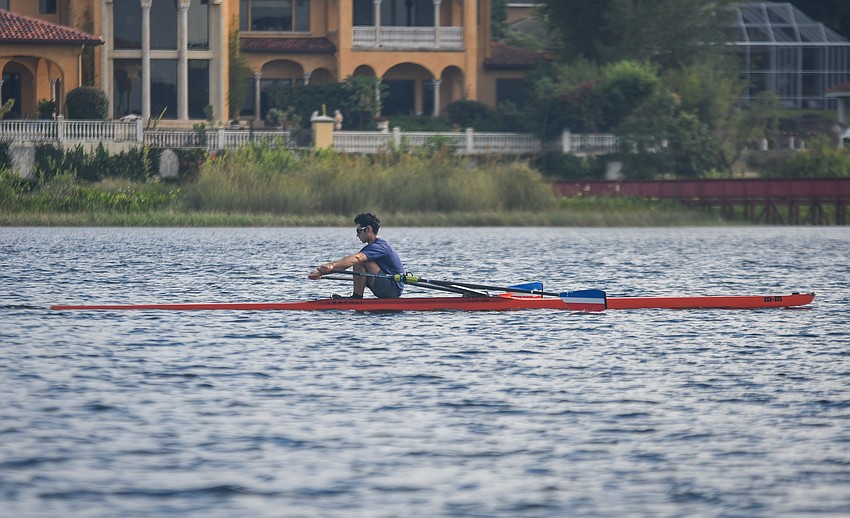
“We … have created more opportunities for our kids by having a variety of boat sizes at our club,” Anderson said. “We used to only focus on eights and fours. Now, we are able to boat all sculling and sweep boats. … USRowing has added more opportunities at this event. It used to be all just ‘Youth 8’ or ‘Youth 4.’ Now, they have created more categories based on ages, which gives so many more athletes the opportunity to compete.”
The U.S. Rowing Youth National Championships is designed as a progression system. Through time trials during the first day, only 26 to 28 teams per category will advance to the next days of racing. This, of course, depends on the number of entries per event.
“Honestly, I love big races,” Dansby said. “It’s nice to say that whatever place I get, that’s the place I am in the nation. … It will be cool no matter what, to say, ‘I’m this (number) place in the nation.’ No one can take that away from you.”